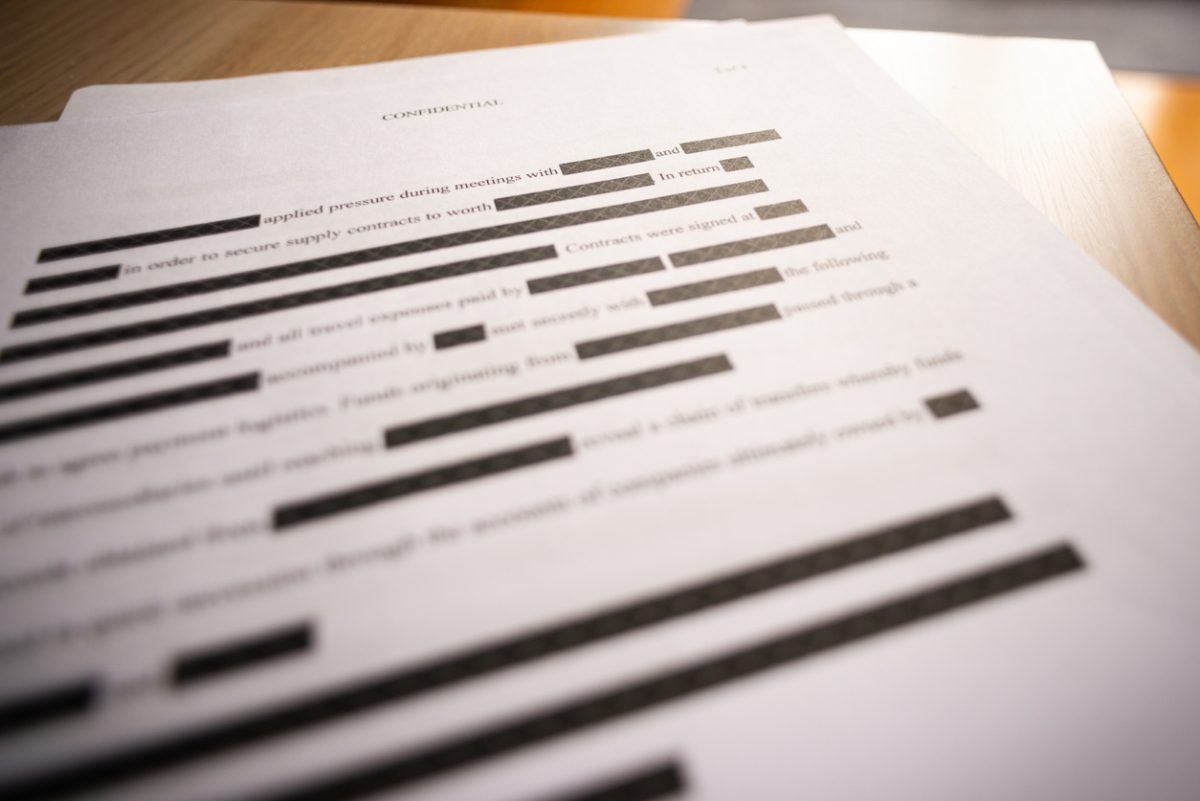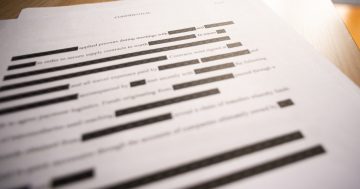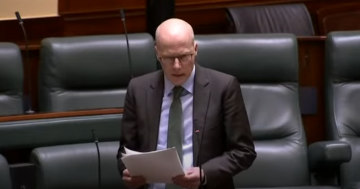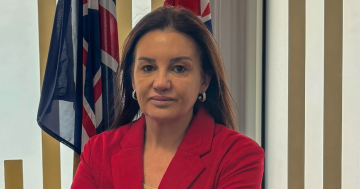
The Federal Government plans to start charging for Freedom of Information requests. Photo: File.
The Federal Government will make it harder for its actions and communications to be scrutinised by charging for Freedom of Information requests.
FoIs delve into documents such as political diary entries, minutes of meetings, advice to the government from the public service, email exchanges, and other correspondence.
It is a vital accountability tool used by all sides of politics, as well as the media, but can also be accessed by the general public.
But Labor is using the excuse of the system being “broken” because it is inundated with “frivolous” FoI requests.
Attorney-General Michelle Rowland is introducing legislation on Wednesday (3 August) she says will “improve Australia’s broken FoI system”.
Expected to be about $50 a pop, the fee will be aimed at stopping frivolous FoI requests and wasting the time of government agencies and taxpayers’ money.
People seeking their own personal information through FoI requests will still be able to do so without attracting a fee.
Currently, all FoI requests at the federal level are free to submit, but they can attract a processing charge if there is a lot of time involved in redacting sensitive information.
Health Minister Mark Butler said one reason a fee would now apply on application is to counter the growing number of anonymous requests, as well as those made by artificial intelligence.
“We’re frankly being inundated by anonymous requests as a government for Freedom of Information, and we don’t know where those requests come from,” he said.
“Many of them, we’re sure, are AI or bot-generated requests. They may be linked to foreign actors, foreign powers.
“We’ve taken the view, as state governments have, that a modest charging environment is consistent with usual cost-recovery principles.”
The Opposition has immediately expressed its outrage at the plan, saying the government was trying to escape accountability. It plans to oppose the legislation.
Shadow attorney-general Julian Leeser described the proposed fee as a “transparency tax” to help Labor avoid scrutiny.
“We’ve seen increases in refusals of FoI since they came to office,” he said.
“We’ve seen stakeholders being forced to sign agreements in relation to non-disclosure agreements in relation to legislation as diverse as workplace relations and religious discrimination. We’ve seen the government deliberately flouting Senate orders for the production of documents.
“We’re now seeing changes to the standing orders to make the government less accountable, and we’ve seen the staff of members of parliament, whose job it is to hold the government to account, slashed … This is a government that talked a big game on transparency before they came to office, but what they’ve done since is anything but transparency.”
Shadow employment minister Tim Wilson said there was no “hard evidence” that the FoI system is broken or being abused.
He was scathing in his criticism of Labor’s intentions.
“The claim they put out there is that there are bots out there doing things, now that may be happening, but this is dealt with by software platforms every day,” Mr Wilson said.
“If there’s other information that’s being accessed by nefarious actors, provide evidence where this is a problem, but again, provide an alternative solution.
“Instead, they’re just imposing a veil of secrecy over the entire government.
“It seems sort of like what you get when you have a government with a 94-seat majority and doesn’t want scrutiny.”
The Greens have also criticised the plan, with the party’s justice spokesperson, David Shoebridge, flagging their intent to oppose the legislation when it reaches the Senate.
“Instead of opening up and having increased transparency today, the Albanese government says that they want to charge people to access information,” Senator Shoebridge said.
“They want to make it tougher to get access to information.
“We say to the government that using some argument about Russian bots is not going to cut it if you want this legislation through the Senate.
“We need more transparency, not less.”
Original Article published by Chris Johnson on Region Canberra.










